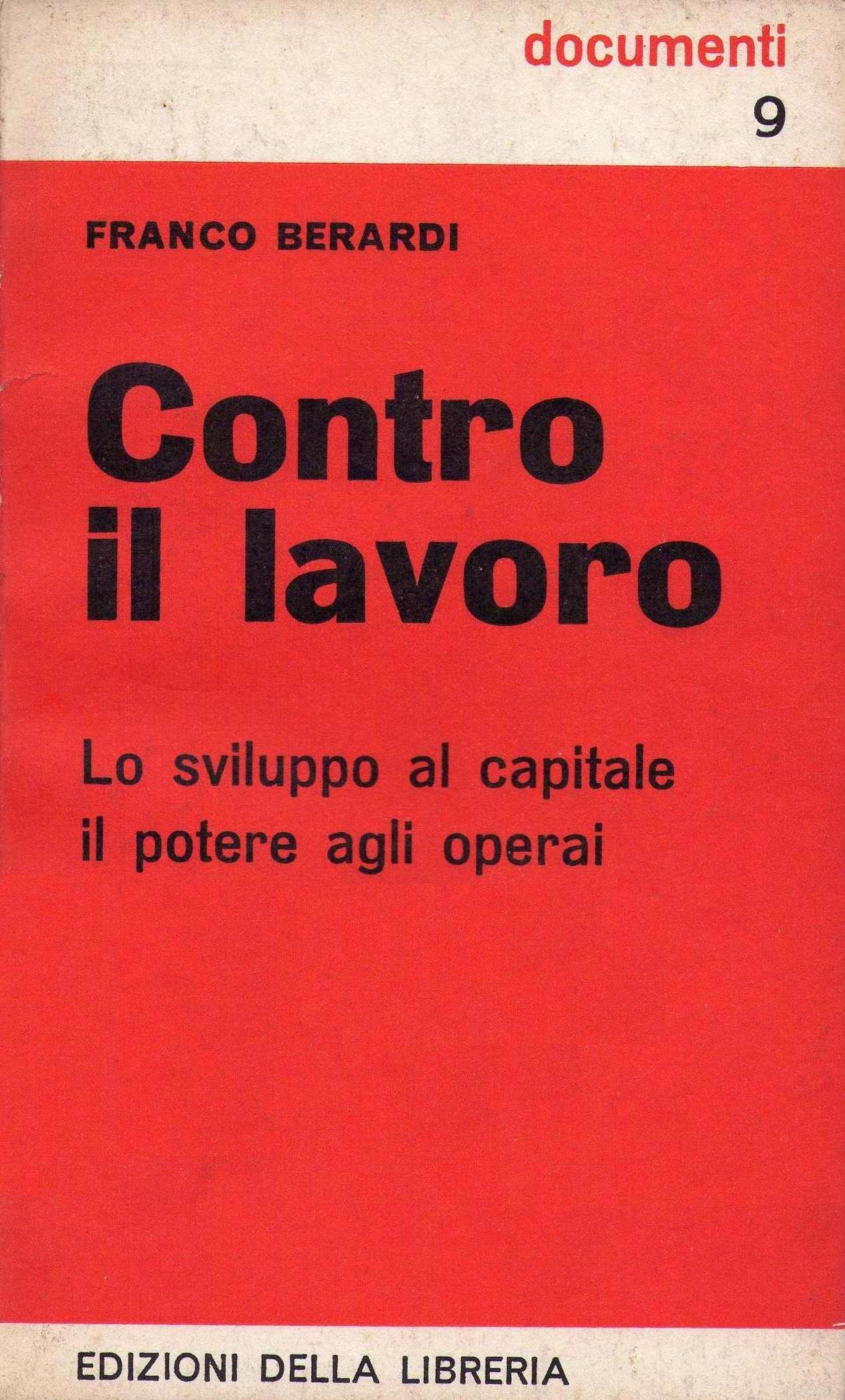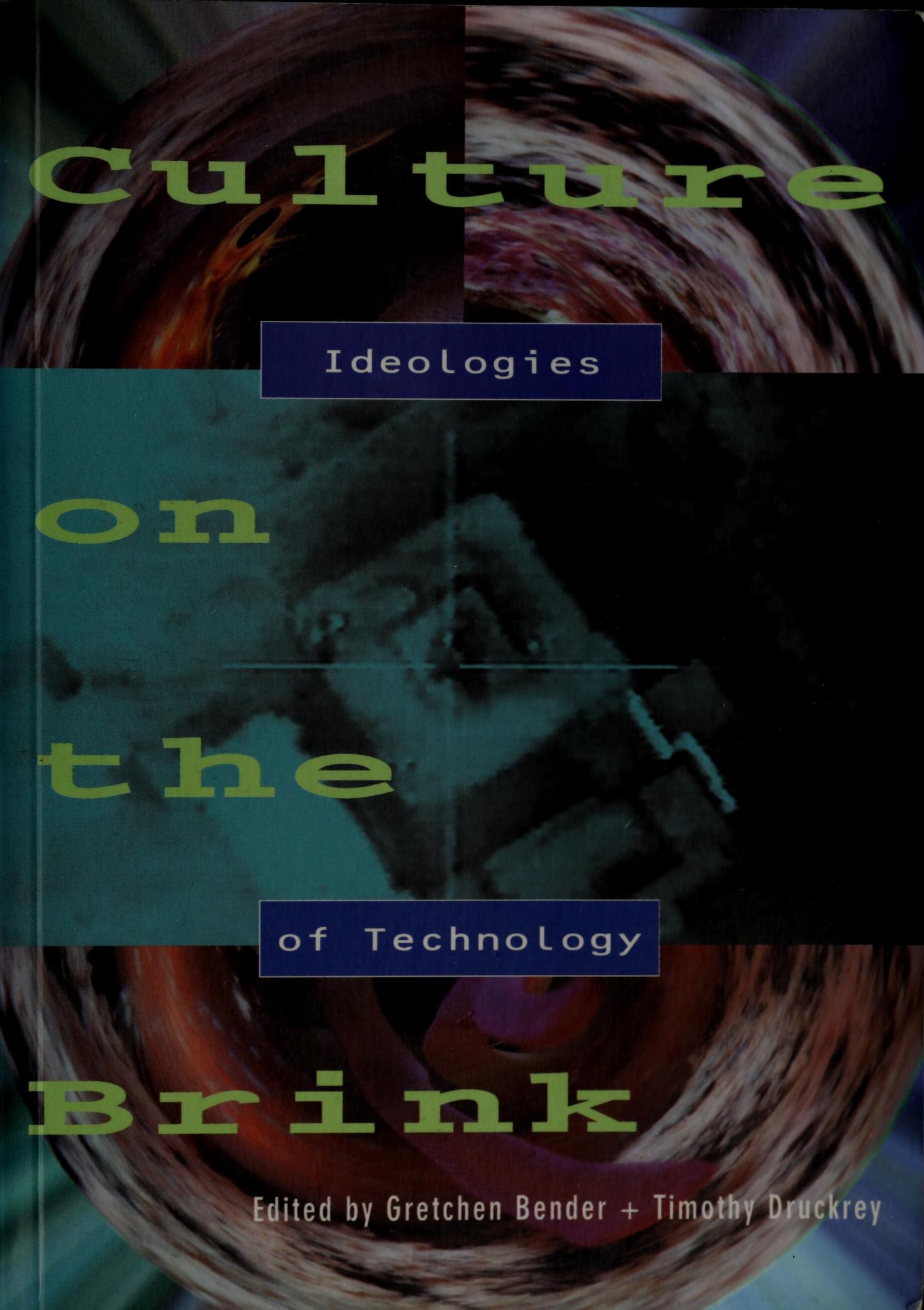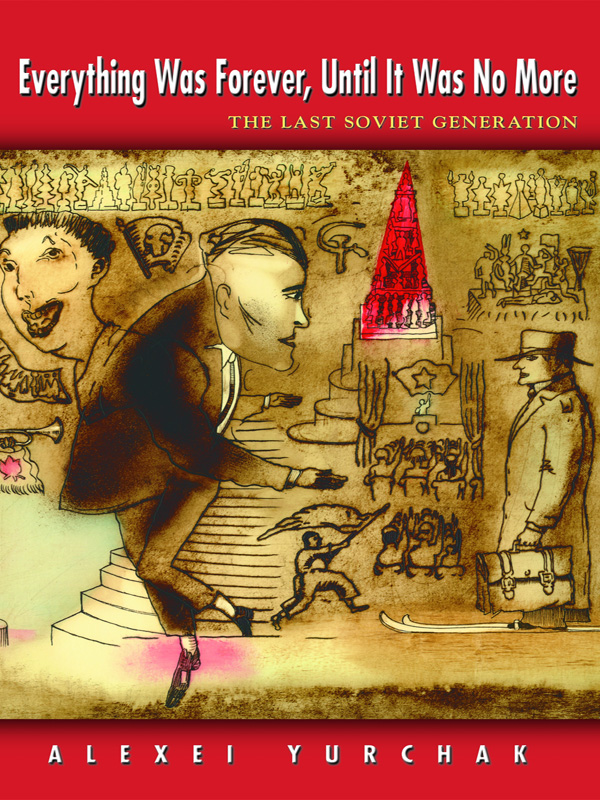Franco Berardi: Contro il lavoro: lo sviluppo al capitale il potere agli operai (1970) [Italian]
Filed under book | Tags: · autonomy, capitalism, ideology, labour, work

“Questo lavoro vuole essere un primo tentativo di costruire sia pure in modo tutto provvisorio, tutto legato alla insorgenza di nuove possibilità ed indicazioni anche teoriche, una impostazione che, partendo dal punto di vista capitalistico, dalla demistificazione dell’ideologia, della scoperta, al di sotto dell’ideologia, dello sviluppo reale del capitale, giunga a decifrare in termini di progetto strategico l’emergenza dei livelli di composizione operaia.
Tutto quello che vi è in questo saggio manifesta la sedimentazione progressiva di ipotesi e linee teoriche legate a situazioni che oggettivamente crescono: e non si può fissare un livello in modo astratto, come ottimale; ma la linea strategica, per non trasformarsi in ideologia, va vista come articolazione teorica del livello pratico delle lotte, che cresce col loro crescere, e non si ferma e fissa ad un livello ottimo. In questo senso i dislivelli (percepibili persino nel linguaggio) rappresentano la crescita di un discorso come articolazione teorica della crescita pratica delle lotte dell’autonomia, dell’organizzazione.”
Publisher Edizioni della Libreria, Milan, 1970
161 pages
via Silvio
PDF (30 MB)
Internet archive (version cleaned by Grafton9, added on 2017-9-6)
Gretchen Bender, Timothy Druckrey (eds.): Culture on the Brink: Ideologies of Technology (1994)
Filed under book | Tags: · body, identity, ideology, information, media, media theory, technology, theory

A wide-ranging collection of essays by Margaret Morse, Billy Klüver, Laurie Anderson, Simon Penny, Avital Ronnell, and others.
Publisher Bay Press, Seattle, 1994
Dia Center for the Arts: Discussions in Contemporary Culture series, 9
ISBN 0941920283, 9780941920285
361 pages
Review: Roger Silverstone (Screen, 1997).
PDF (106 MB)
Comment (0)Alexei Yurchak: Everything Was Forever, Until It Was No More: The Last Soviet Generation (2005–) [EN, RU]
Filed under book | Tags: · 1950s, 1960s, 1970s, 1980s, anthropology, communism, ideology, russia, socialism, soviet union

“Soviet socialism was based on paradoxes that were revealed by the peculiar experience of its collapse. To the people who lived in that system the collapse seemed both completely unexpected and completely unsurprising. At the moment of collapse it suddenly became obvious that Soviet life had always seemed simultaneously eternal and stagnating, vigorous and ailing, bleak and full of promise. Although these characteristics may appear mutually exclusive, in fact they were mutually constitutive. This book explores the paradoxes of Soviet life during the period of ‘late socialism’ (1960s-1980s) through the eyes of the last Soviet generation.
Focusing on the major transformation of the 1950s at the level of discourse, ideology, language, and ritual, Alexei Yurchak traces the emergence of multiple unanticipated meanings, communities, relations, ideals, and pursuits that this transformation subsequently enabled. His historical, anthropological, and linguistic analysis draws on rich ethnographic material from Late Socialism and the post-Soviet period.
The model of Soviet socialism that emerges provides an alternative to binary accounts that describe that system as a dichotomy of official culture and unofficial culture, the state and the people, public self and private self, truth and lie–and ignore the crucial fact that, for many Soviet citizens, the fundamental values, ideals, and realities of socialism were genuinely important, although they routinely transgressed and reinterpreted the norms and rules of the socialist state.”
Publisher Princeton University Press, 2005
In-Formation series
ISBN 0691121168, 9780691121161
x+331 pages
Reviews: Gleb Tsipursky (Soviet and Post-Soviet Review, 2005), Sheila Fitzpatrick (London Review of Books, 2006), John P. Ziker (American Anthropologist, 2006), Luahona Ganguly (Int’l J Communication, 2007), Christian Noack (H-Soz-u-Kult, 2007, DE), Christoph Neidhart (J Cold War Studies, 2010).
Everything Was Forever, Until It Was No More (English, 2005, EPUB)
Eto bylo navsegda, poka ne konchilos (Russian, trans. A. Belyaev, 2014, 15 MB)

